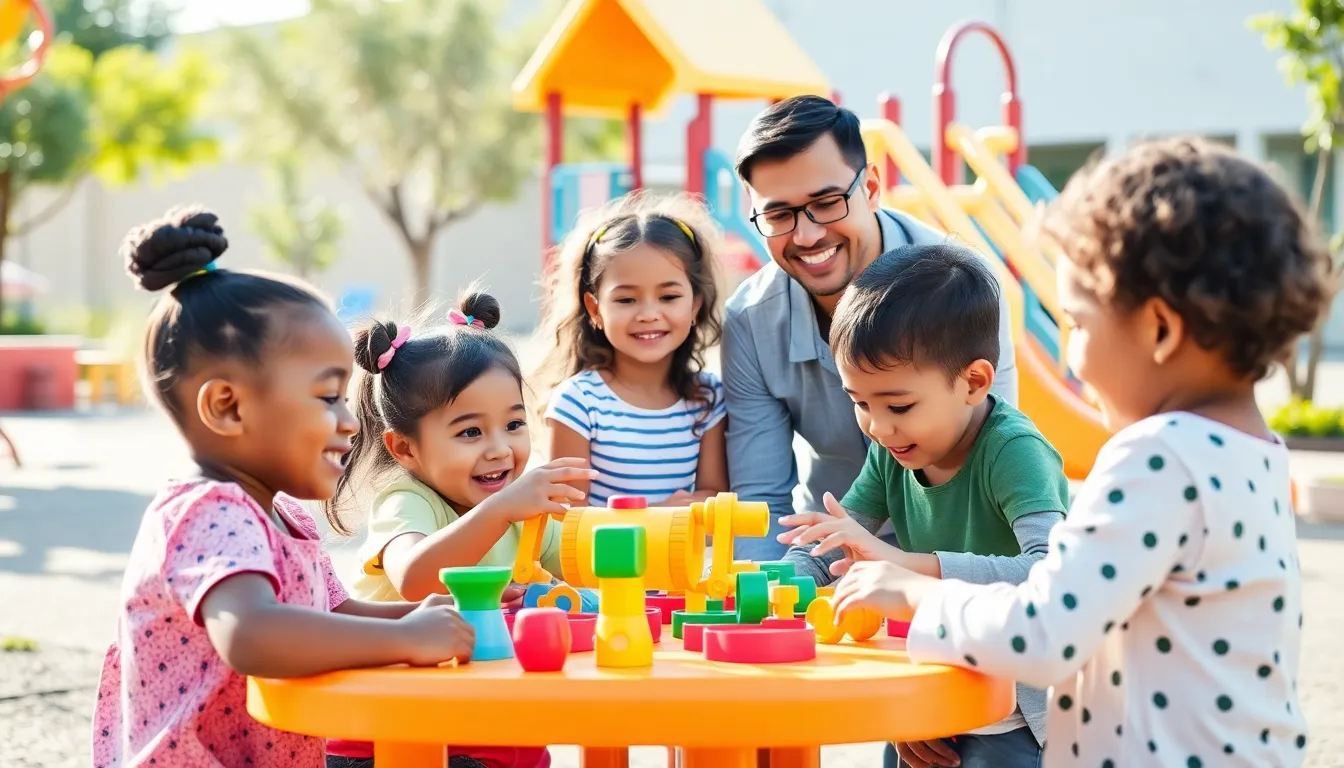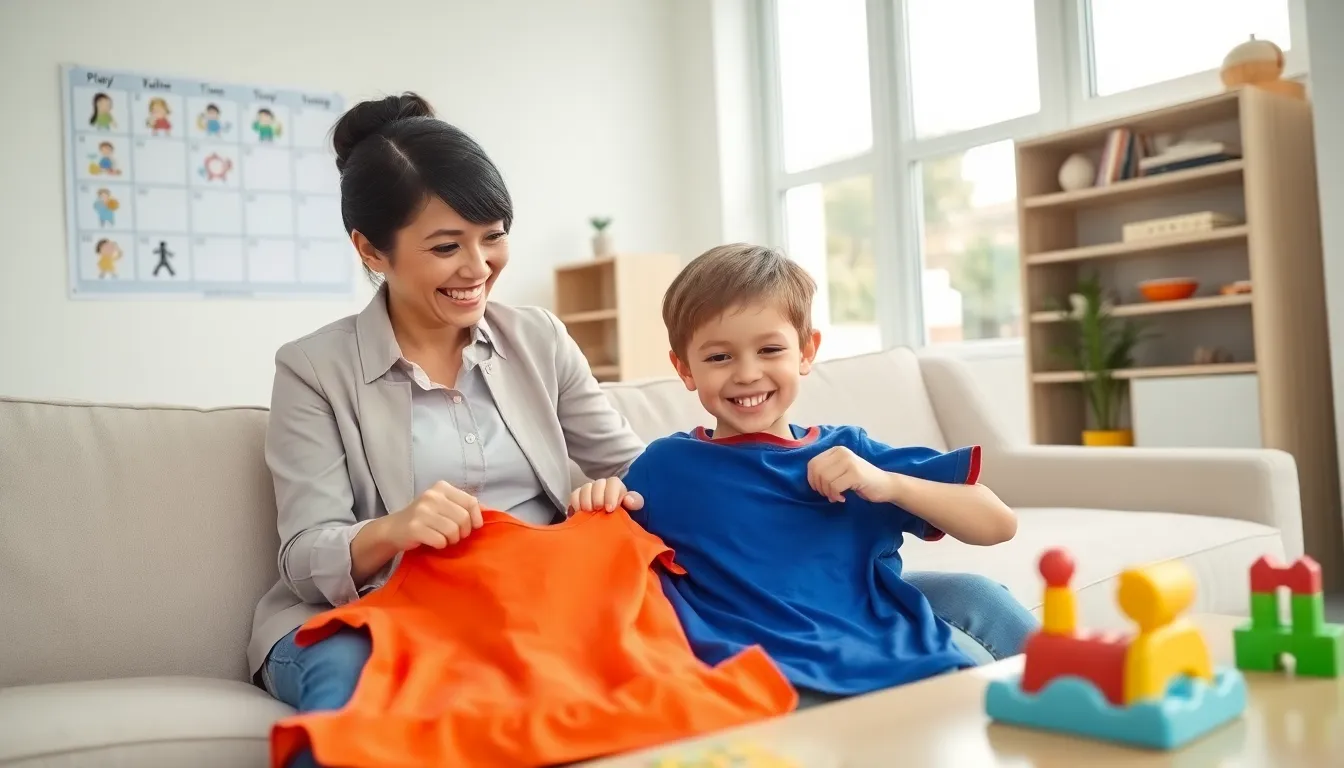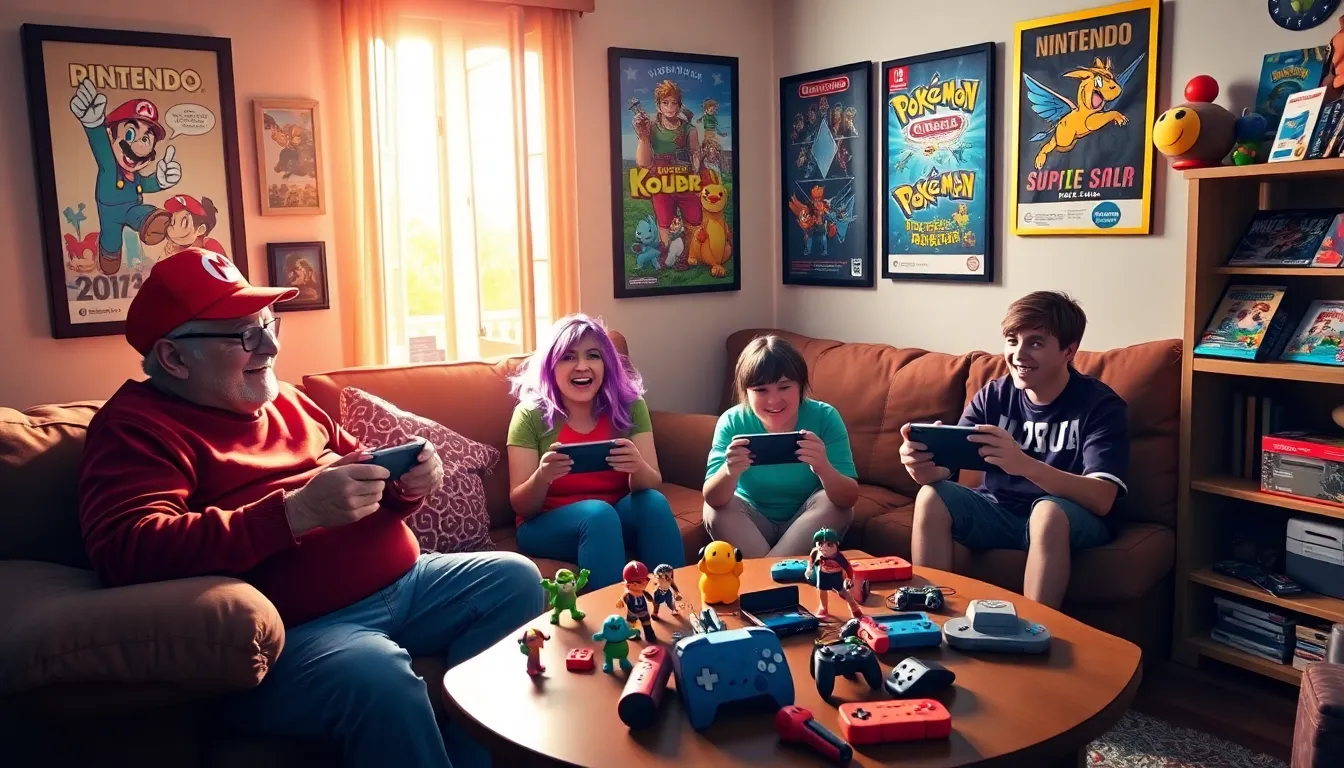Navigating the world of preschool parenting isn’t just about surviving the chaotic mornings or hiding the vegetables in mac and cheese: it’s a delightful journey filled with significant growth opportunities. Ever noticed how preschoolers have the uncanny ability to drive parents to the brink of sanity with their boundless energy? Yet, amidst the spirited tantrums and spontaneous dance parties, there’s so much development happening. This article aims to equip parents with practical, effective tips to tackle preschool parenting with confidence. So grab a cup of coffee (or two), and let’s jump into the delightful chaos of preschool development.
Table of Contents
ToggleUnderstanding Preschool Development Stages

Preschoolers are like little sponges, absorbing everything from social cues to emotional responses. Understanding the development stages of preschoolers can help parents foster a supportive environment that caters to their ever-evolving needs.
Social Skills Development
During these formative years, children blossom socially. They learn to share, take turns, and even navigate interpersonal conflicts more effectively. It might feel like a tug-of-war when they refuse to share their favorite toy, but remember, this is part of their learning process. Encourage playdates and group activities. This allows your child to practice these skills in real-life situations.
Emotional Growth and Regulation
Preschool is a period of heightened emotions. Preschoolers often swing from joy to tantrum in nanoseconds. Helping them label their feelings can be beneficial. Encourage them to express emotions verbally, “I feel sad,” or “I feel mad.” This practice not only validates their feelings but also aids emotional regulation. Techniques like deep breathing can also prove to be lifesavers during those meltdowns.
Cognitive Development Essentials
At this stage, cognitive growth is rapid. Children begin to explore colors, numbers, shapes, and basic problem-solving. Use everyday moments to introduce educational concepts. Turn grocery shopping into a math lesson by asking them to count items or sort fruits by color. Simple puzzles and matching games can further stimulate their growing minds.
Promoting Independence and Self-Help Skills
Fostering independence in preschoolers not only builds their self-esteem but also empowers them with essential life skills.
Encouraging Decision-Making
Allowing preschoolers to make choices can greatly enhance their sense of autonomy. Offer them options instead of ultimatums, “Would you like to wear the red shirt or the blue one?” This small practice can boost their decision-making skills and confidence in their choices.
Fostering Self-Care Routines
Self-help skills are critical at this age. Teach your child to brush their teeth, wash their hands, and even dress themselves. These skills not only contribute to independence but also establish a sense of responsibility. Turning these tasks into fun activities helps, too. For example, singing a song while washing hands can make it a delightful experience.
Creating a Stimulating Environment
The environment in which a child grows plays a pivotal role in their learning. Creating a stimulating atmosphere can enhance their curiosity and motivation.
Choosing Educational Activities
Opt for activities that are engaging and educational. Look for toys that stimulate creativity, like building blocks or art supplies. Also, diversify the types of activities they engage in, from arts and crafts to science experiments. Remember that learning happens both inside and outside the home. Visits to museums or nature walks can ignite curiosity and promote learning in exciting ways.
Incorporating Play Into Learning
Playing is an essential aspect of learning for preschoolers. Encourage imaginative play through dress-up, role-playing, and storytelling. This not only enhances their creativity but also helps in understanding narratives and building vocabulary.
Establishing Routines and Boundaries
Children thrive on predictability. Establishing routines helps them feel secure while also promoting good habits.
Creating Consistent Daily Routines
A clear routine helps preschoolers understand what to expect throughout the day. Create a schedule that includes time for meals, play, and learning. Visual aids like charts can also be useful for reinforcing this routine. Having a bedtime routine, for example, can make transitions smoother and encourage a restful night’s sleep.
Setting Clear Boundaries and Consequences
Setting boundaries is crucial. Establish clear rules about behavior and the consequences of crossing those lines. For instance, if toys aren’t put away, certain fun activities might be off the table. Consistency in enforcing these boundaries helps children understand expectations and encourages positive behavior.
Nurturing Positive Behavior
Fostering positive behavior early on lays the groundwork for a child’s future interpersonal relationships and self-regulation.
Positive Reinforcement Techniques
When children exhibit positive behavior, acknowledge it. Simple affirmations like, “I’m so proud of you for sharing.” can work wonders. Instead of focusing on what they shouldn’t do, redirect their behavior by praising the positive actions you want to encourage.
Modeling Appropriate Behavior
Children are keen observers. They learn by watching the adults in their life. Exhibit the behavior you want to see: model kindness, patience, and respect in your interactions. When parents demonstrate these values consistently, children are likely to emulate them.






